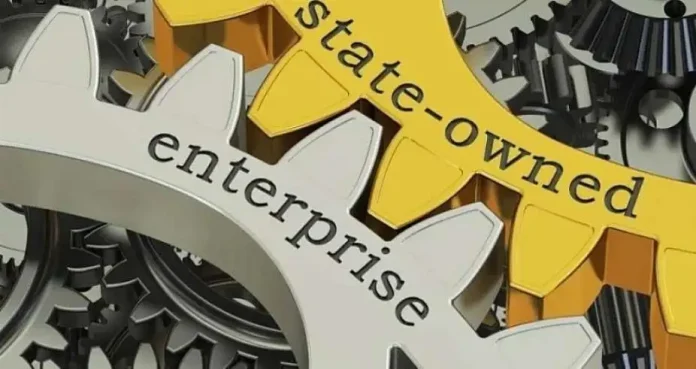
A Political Science lecturer at the University of Ghana, Dr Joshua Zaato, has identified political patronage as the root cause behind escalating corruption within state-owned enterprises, warning that the practice threatens Ghana’s economic stability if left unchecked.
The academic’s assessment comes amid mounting evidence of financial mismanagement across public institutions. Recent Auditor-General reports have exposed irregularities totaling billions of cedis, with the National Service Authority alone accounting for GH¢2.5 billion in questionable transactions between 2018 and 2024. The broader picture is even more alarming, as Ghana recorded GH¢18.4 billion in financial irregularities in 2024, more than double the GH¢8.8 billion recorded in 2023.
Dr Zaato has charged government to implement measures ensuring accountability and transparency among state-owned enterprises. His concerns reflect a pattern where political connections override professional management, transforming institutions meant to serve public interests into vehicles for private enrichment.
The problem isn’t simply about weak oversight. The Auditor-General attributes the failures to poor internal controls, management inertia, and flagrant disregard for existing financial laws, with the Public Financial Management Act, Public Procurement Act, and Audit Service Act routinely breached without consequence. In many institutions, audit committees either don’t function properly or face undermining from weak governing boards.
Consider the Electricity Company of Ghana, which exemplifies the scale of dysfunction. ECG was found to have under-declared revenue by GH¢2.95 billion, underpaid GH¢1.29 billion to SOEs and independent power producers, and spent GH¢75 million on a revenue collection contract with Hubtel Limited without a signed agreement. That single institution accounts for more than GH¢5 billion of the national total.
The pattern repeats across sectors. NSA officials systematically bypassed the Central Service Management Portal controls, with 78 percent of postings between 2018 and 2024 done through manual overrides despite having fit-for-purpose automated software. When systems designed to prevent abuse are deliberately circumvented, it suggests something beyond incompetence.
Dr Zaato’s research background in governance and state-owned enterprises gives his warnings particular weight. He holds a PhD in Public Administration from the University of Ottawa and has consulted for the World Bank, with research focusing on governance and policy failure in Ghana and the developing world. His academic work has examined SOE reform extensively, making him uniquely positioned to diagnose these systemic problems.
The political dimension cannot be ignored. When appointments to SOE leadership positions depend more on political loyalty than professional competence, accountability suffers. The bulk of irregularities, about GH¢15.6 billion or 84.6 percent, are deemed recoverable, including overdue debts owed to the state, unpaid loans and advances, locked-up investments, and other outstanding receivables. Yet recovery requires political will that often proves elusive when those responsible have powerful protectors.
What makes the situation particularly frustrating is that many SOEs have adequate systems in place. The problem lies in their selective application. When officials can bypass controls with impunity, no amount of investment in technology or procedures will prevent abuse. The missing ingredient is consequences for violations.
Dr Zaato’s characterization of SOEs as “milking cows for politicians” captures an uncomfortable truth about how these institutions have evolved. Rather than functioning as efficient public service providers or strategic economic tools, too many have become patronage networks where connections matter more than competence or compliance.
The implications extend beyond financial losses. When state institutions operate without genuine accountability, public trust erodes. Citizens lose confidence in government’s ability to manage resources responsibly, which undermines broader development efforts and democratic governance.
Addressing this requires more than technical reforms. It demands a fundamental shift in how political power relates to institutional management. That means insulating SOE leadership appointments from purely political considerations, strengthening audit mechanisms, and most critically, ensuring that findings from the Auditor-General translate into meaningful consequences.
The question isn’t whether Ghana has the legal frameworks or technical capacity for better SOE governance. Laws like the Public Financial Management Act, Public Procurement Act, and Audit Service Act exist but are routinely breached without consequence. The challenge is creating conditions where those laws actually constrain behavior rather than serving as mere paper barriers easily circumvented by well-connected officials.
Until political leaders demonstrate willingness to prioritize institutional integrity over patronage networks, the patterns Dr Zaato warns about will likely continue. The real test isn’t what government says about fighting corruption but whether it applies accountability standards equally, regardless of political affiliation or personal connections.
